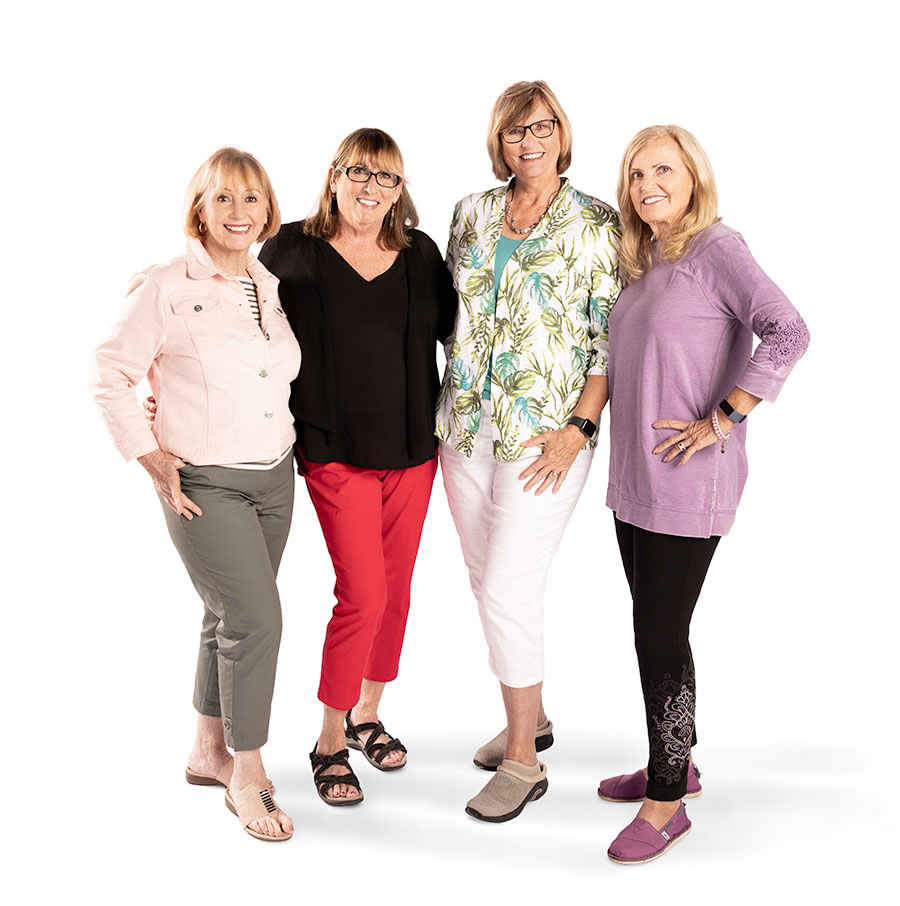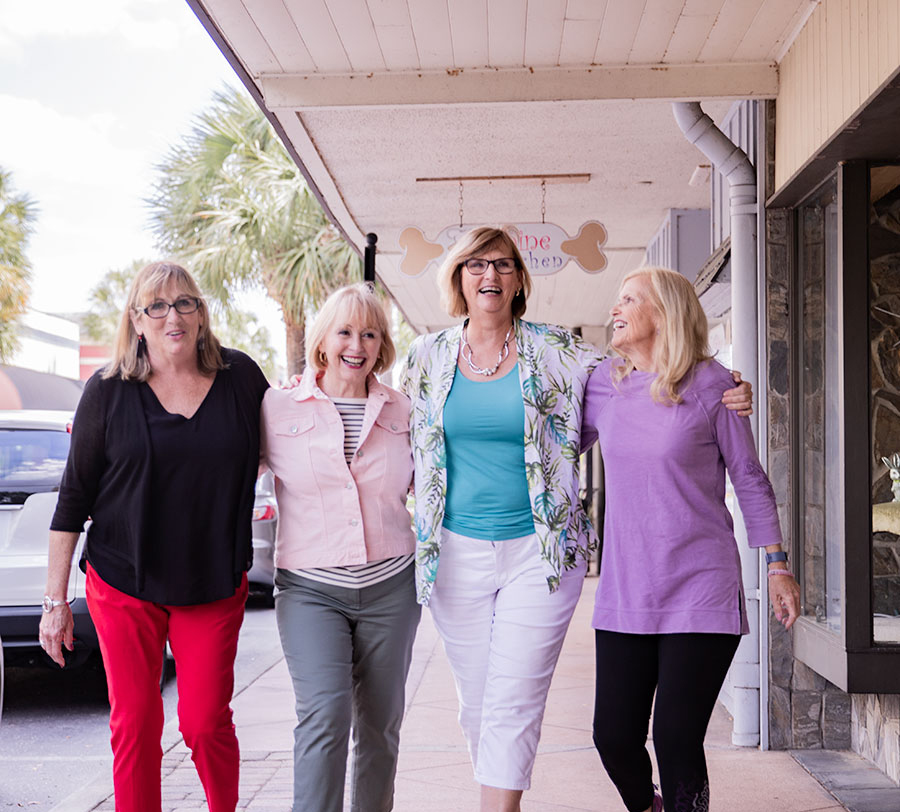You gotta have friends
Close friendships are a vital part of a woman’s life.
You’d have to be living in a cave not to know that eating healthy food, exercising, and finding a positive way to deal with stress are essential to living longer. For women, however, another essential part of that regimen is close friendships.
“With women today, their lives are full, they have a lengthy task list, and friendships are suffering because of this,” says Dr. Nisha Jackson, hormone and natural health specialist in Oregon. “Often, women don’t realize how to optimize their health with friendship.”
Dr. Jackson advocates getting a “Girl Squad” to fully enjoy the positive and continual support from other women. The author of “Brilliant Burnout: How Successful, Driven Women Can Stay in the Game by Rewiring Their Bodies, Brains, and Hormones,” Dr. Jackson says burnout is one of the largest epidemics among modern women. Her book offers information to help women thrive while meeting the demands of home and career and keeping themselves on track.
“The benefits of positive and continued support from friendships with other women is vital,” Dr. Jackson says. “Brigham Young University did research about social interaction for women and found those who had regular, planned social activities lived longer.”
It’s well known that men and women think differently, are emotionally different, and women are more intuitive than men. For example, women often can tell by the tone of a voice on the phone if there is a problem or if something good has happened. They share secrets and their lives and often clothes, makeup, or uncomfortable things like, “You have broccoli in your teeth.”
A 2011 article in the Journal of Clinical Oncology states that researchers at Vanderbilt-Ingram Cancer Center and doctors at Shanghai Institute of Preventive Medicine found that women who had satisfaction with their marriage, close ties with family, and close friends had a 38 percent reduction in the risk of mortality with breast cancer, and a 48 percent lower risk of recurrence when compared with those who did not have close relationships.
Dr. Jackson recommends that women have three types of friends in their “tribe”: the fearless adventurer, a wise counselor confidante, and a loyal bestie.
If you work hard at home and at your job, you need to know there will be time for breaking loose and leaving that behind. Your adventurous friend will encourage you to play and laugh, releasing the endorphins that make you feel good. You also may feel great pride in doing something daring like riding a zip line or reading a risqué romance novel.
All women have circumstances where they have to face the truth of a situation. It may involve setting tougher boundaries for a child or accepting responsibility for moving a parent to a safer place. Whatever it is, it’s good to have a friend who listens to everything you say—how bad you feel, why you don’t want to do this, how it hurts you. You may be too close to the situation to see the big picture, and a wise friend can help you back up and view it as you should.

Photo: Douglas Tyler
Bev Katsoulis, Diane Brunovsky, Maureen Terrien, and Eileen Sklon became friends after moving to The Villages.
“Bev and I have been friends for 14 years because we met when we moved in, and I became friends with Diane and Maureen through the photography club,” Eileen says. “Through her scrapbooking, Bev became a member of the photography club.”
“Now it’s the basis of our friendship,” Diane adds. “We also don’t mind shopping and lunch. We do luncheons in our homes, and we occasionally include husbands at dinners.”
The women say they share thoughts about their children and grandchildren—the good and bad times—and they have a lot of good laughs.
“I would feel lost without you guys,” Eileen says to her friends. “Boy, do we have fun when we go on overnight trips.”
“We have cocktails in our room and then go down and have cocktails, too,” Maureen adds.
Dr. Jackson says strong friendships benefit not only physical health but also can help reduce depression in women and men. Connecting socially supports the stress response in the brain that controls cortisol production, known otherwise as the stress hormone. This, in turn, reduces anxiety and mood swings, aids sleep, and even helps regulate glucose or blood sugar.
“Life is full of moments of beauty, kindness, and triumph that we usually fail to notice because we’re so wrapped up in our own concerns,” Dr. Jackson says. “Today, most women hear from society or repeat in their minds the messages: ‘think big,’ ‘go for more,’ ‘climb the ladder of success.’ But if you’re trying to do this without the help and support of others close to you, it will be an unpleasant and lonely grind.”
Bev, Eileen, Diane, and Maureen admit they’ve become so close they share the same tastes in many things. During a photography convention, they all showed up with black-and-white-striped shirts.
“It was completely unintentional,” Maureen says, “but the next year we wore them for fun!”
“Many times at lunch, we’ll all order the same things,” Bev adds. “And we always have something to talk about.”
They call themselves the Lens Friends because of the photography connection and Diane adds, “We have a different viewpoint, that’s all.”

